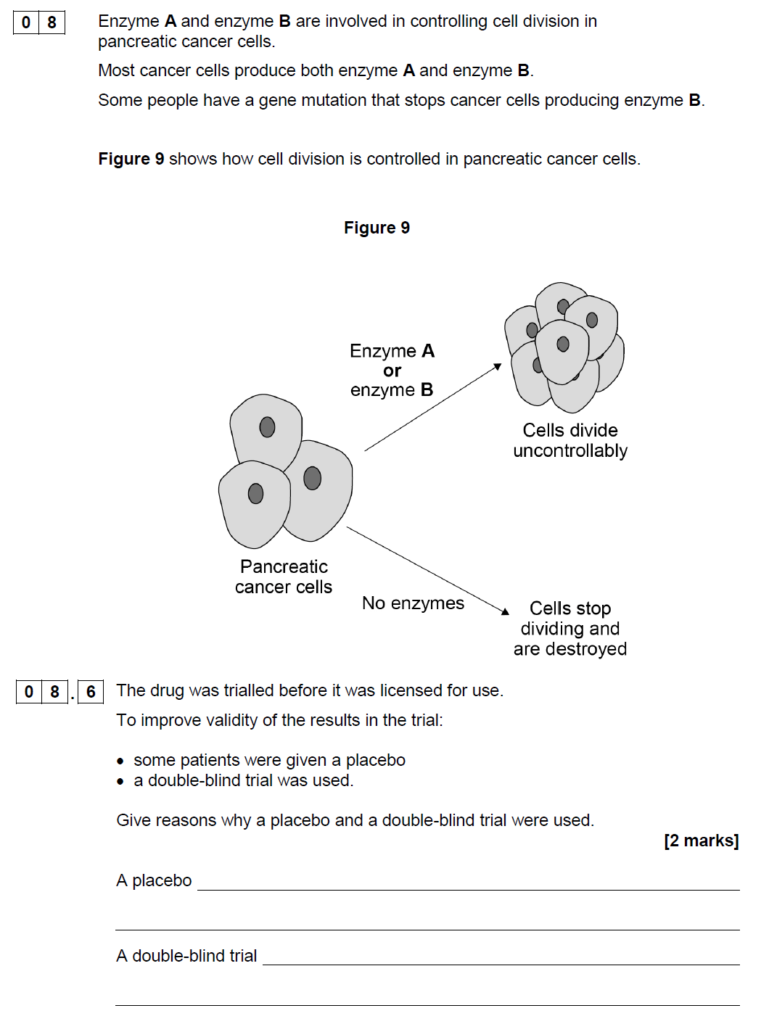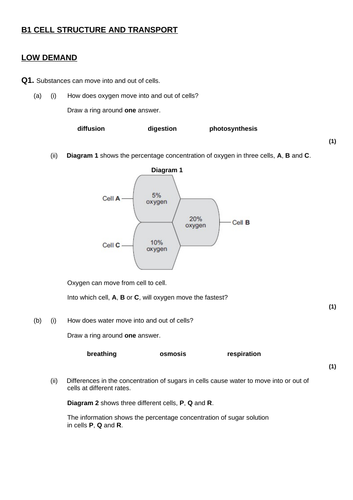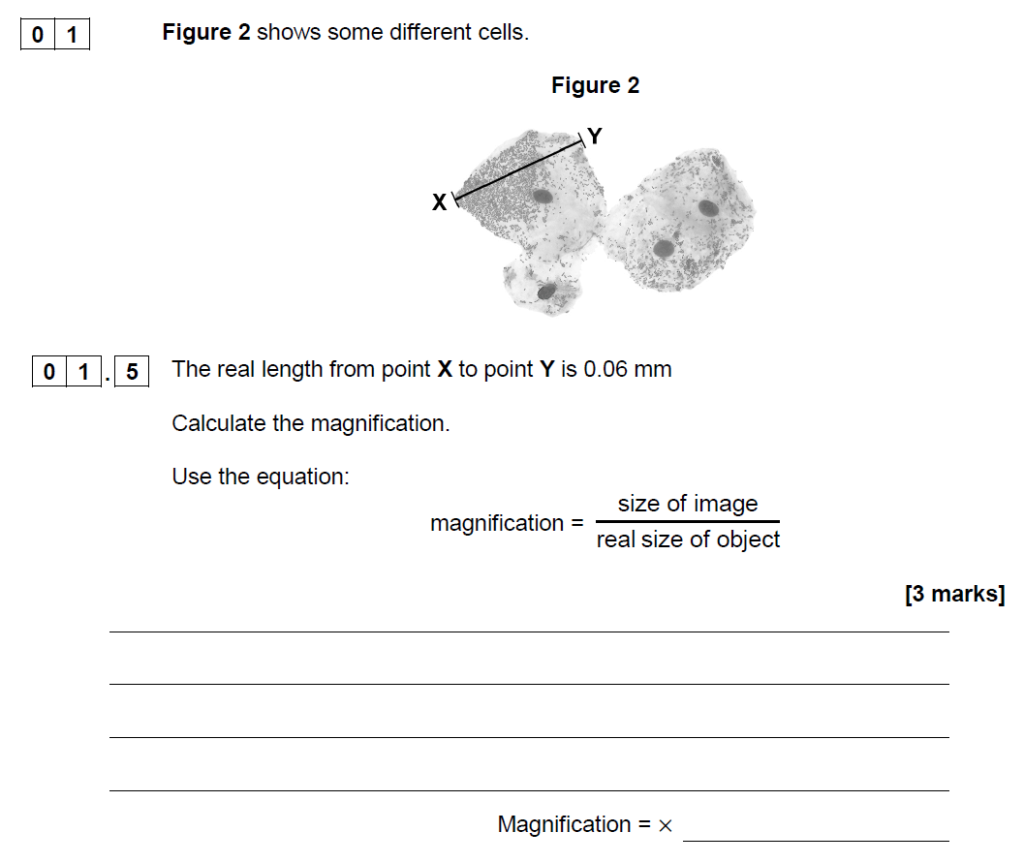Preparing for your AQA GCSE Biology examination involves a multifaceted approach, and one of the most effective tools at your disposal is past papers. These invaluable resources offer insight into the format, structure, and types of questions that may appear on the actual exam.
However, making the most of past papers requires a strategic approach. In this guide, we’ll explore how to effectively utilize AQA GCSE Biology past papers to enhance your preparation and maximize your chances of success.
Understanding the Format

AQA GCSE Biology past papers are meticulously structured to assess your understanding of the subject across various question types. Familiarizing yourself with these formats is crucial for effective preparation:
Multiple-Choice Questions
Multiple-choice questions present a stem followed by several options, with only one correct answer. While seemingly straightforward, these questions often require a deep understanding of concepts and the ability to eliminate incorrect options through logical reasoning.
Pay attention to keywords and ensure you understand the concepts thoroughly to avoid falling into traps laid by distractors.
Short-Answer Questions
Short-answer questions typically require concise responses, often in the form of a single word, phrase, or brief explanation.
These questions test your knowledge of specific facts, definitions, or concepts.
It’s essential to be clear and concise in your responses, ensuring that you address all aspects of the question without unnecessary elaboration.
Structured Questions
Structured questions may involve filling in tables, completing diagrams, or labeling diagrams with specific structures.
Moreover, these questions assess your ability to organize information accurately and demonstrate understanding through graphical representation.
Practice interpreting diagrams and labeling them correctly to ensure you can tackle these questions confidently.
Extended Writing Tasks
Extended writing tasks require more detailed responses, often in the form of essays or extended explanations. These questions assess your ability to synthesize information, evaluate evidence, and communicate your understanding effectively.
When tackling extended writing tasks, ensure you structure your response coherently, provide relevant examples or evidence to support your points, and demonstrate a deep understanding of the topic.
Identifying Key Topics

Before diving into past papers, it’s crucial to identify the key topics covered in the GCSE Biology syllabus. This ensures that you focus your revision efforts on areas that are likely to appear on the exam.
Common topics include cell biology, genetics, ecology, evolution, and human biology. Make a list of these topics and prioritize your revision accordingly.
Practice Makes Perfect
Once you’ve identified the key topics, begin practicing with past papers. Start with questions related to topics you feel least confident about and gradually work your way through the entire syllabus.
Aim to complete past papers under timed conditions to simulate exam conditions accurately. This not only improves your time management skills but also helps alleviate exam-related stress.
Analyzing Mistakes
When you finish a practice test, it’s important to look at the questions you got wrong and understand why. Here’s how to do it in simple steps:
Look at each question you got wrong and figure out what went wrong. Did you not understand the question? Did you make a mistake in your answer?
Think about why you made the mistake. Did you not know the answer? Did you read the question too quickly?
In addition, see if there are any types of questions that you always get wrong. Maybe you struggle with math questions or ones about animals. Knowing this helps you focus on those areas. Consider how you approached the questions. Did you rush through them? Did you spend too much time on one question?
Write down the questions you got wrong and why. This helps you remember what to work on later. Use what you learned to study those topics again. Try different ways of learning, like reading, watching videos, or doing activities.
Keep practicing and see if you’re improving. Celebrate when you get better and keep working on the areas where you still struggle.
Seeking Feedback
Don’t hesitate to seek feedback from your teachers or peers on your past paper attempts. They can provide valuable insights into areas where you may need further clarification or practice.
Additionally, discussing your answers with others can help reinforce your understanding of key concepts and foster collaborative learning.
Utilizing Mark Schemes
AQA provides mark schemes for past papers, which outline the criteria for awarding marks to each question.
After completing a past paper, compare your answers to the mark scheme to gauge your performance accurately. Pay attention to the specific details and keywords required to earn full marks.
This helps refine your exam technique and ensures that you’re addressing all aspects of the question.
Variety is Key
As you progress with your revision, aim to tackle a variety of past papers from different years. This exposes you to a broader range of question styles and ensures that you’re well-prepared for any surprises on exam day.
Don’t rely solely on recent past papers; older papers can still be valuable resources for practicing foundational concepts.
Conclusion
AQA GCSE Biology past papers are indispensable tools for effective exam preparation. By understanding the format, identifying key topics, and practicing strategically, you can enhance your confidence and performance on the day of the exam. Remember to analyze your mistakes, seek feedback, and utilize mark schemes to refine your skills further. With dedicated practice and perseverance, you’ll be well-equipped to tackle any challenge that comes your way.
